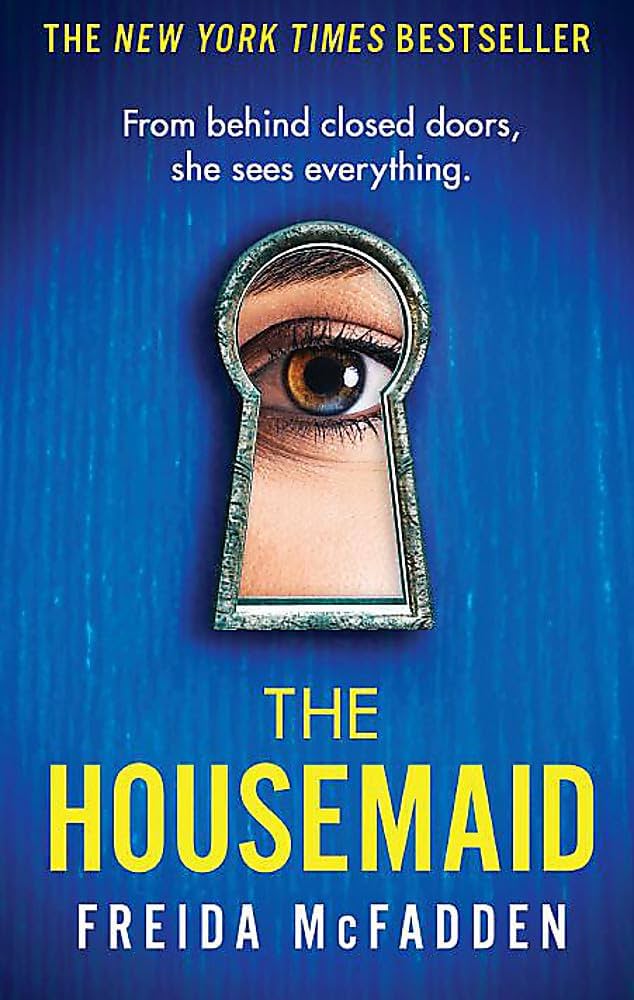Chapter 59
byChapter 59 unfolds a deeply emotional moment through Nina’s perspective, set in the haunting atmosphere of an attic dimly lit by the flicker of a solitary light. The discovery of Andy’s lifeless body brings an overwhelming sense of shock and disbelief, but it also triggers a confrontation with Millie, who, armed with pepper spray, is visibly rattled by her own actions. Despite the immediate threat posed by Millie, who is clearly in a state of emotional turmoil, Nina’s focus remains on her, sensing that there’s more to the situation than the visible aggression. This choice to concentrate on Millie’s fragile state, rather than the potential danger she poses, reveals Nina’s deeper understanding of the complex emotions that are at play. It highlights Nina’s ability to navigate the chaos of the moment with a steady composure, offering a glimpse into her capacity for empathy in the face of despair.
As Millie stands in the attic, her confession unravels the mystery of Andy’s death—he has been lying lifeless for days, a revelation that hits Nina like a cold wave. She observes the body, confirming the grim reality of the situation, yet it is her inner strength that allows her to process the harsh scene without succumbing to panic. While Nina examines the situation, Millie’s composure begins to crumble, and the weight of her actions crashes down on her, manifesting in her emotional breakdown. The emotional stakes intensify as Millie’s guilt and regret become palpable, but Nina’s calmness in the face of such a gruesome discovery serves as a sharp contrast to the chaos Millie feels, further showcasing the layered complexity of Nina’s character. It is in this pivotal moment that Nina’s resilience shines through, a quiet strength that doesn’t just endure but also seeks to understand the despair of others.
Amid Millie’s overwhelming guilt and fear of what might come next, Nina makes a profound decision that speaks to her deep sense of responsibility and sacrifice. She offers herself as the one to take the blame for Andy’s death, suggesting that she will use her past struggles with mental health as a defense strategy. This decision is not only an act of self-sacrifice but also a testament to Nina’s complex character, highlighting her willingness to shield Millie from the emotional and legal consequences of her actions. Nina’s readiness to take on the burden of guilt, despite her own troubled past, reveals a side of her that is motivated by compassion and loyalty, willing to endure the consequences of a crime she did not commit for the sake of someone else’s well-being. Her decision to act as a scapegoat showcases her internal conflict and the moral dilemma she faces, as she grapples with the blurred lines between right and wrong.
The exchange between Nina and Millie shifts from a tense confrontation to a moment of unexpected compassion and understanding, as Nina solidifies her commitment to protecting Millie from further harm. Through Nina’s eyes, the narrative explores the intricacies of sacrifice, loyalty, and the fine line between justice and personal redemption. This pivotal moment in the story sets the stage for future events, as Nina’s willingness to take the fall introduces a new layer of complexity to the already tumultuous relationships between the characters. As the chapter unfolds, it delves into themes of selflessness, guilt, and the sacrifices people make for the ones they love. The attic, a once foreboding space filled with secrets and tension, becomes a symbolic setting for the irreversible decisions made in the heat of emotion. It is within these walls that Nina makes a choice that will echo through her life and the lives of those around her, with far-reaching consequences that will shape the story going forward.


